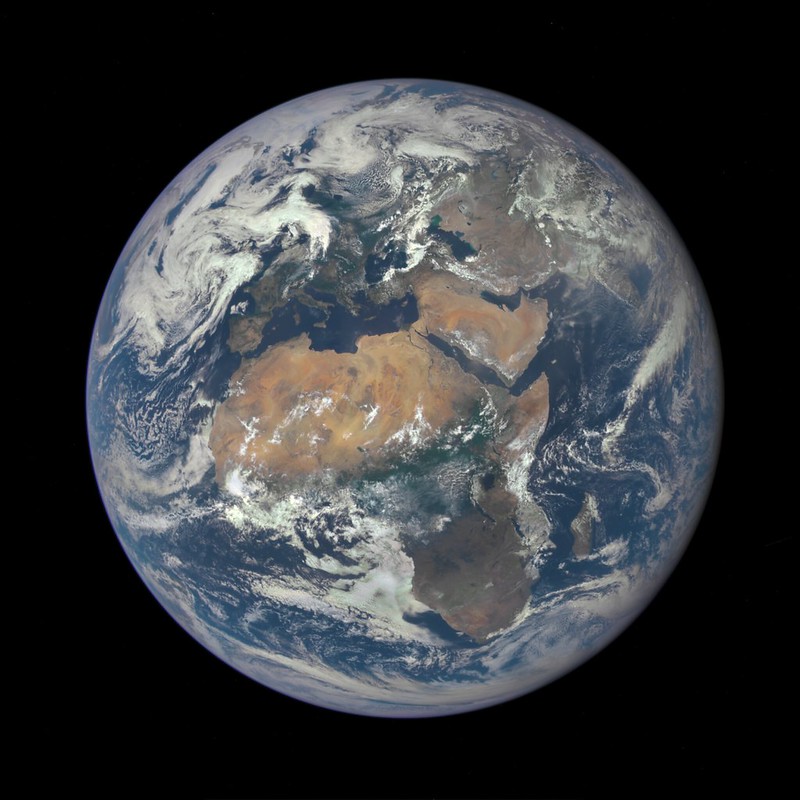By understanding that a person is a person only through other people, Ubuntu can help frame responses to tragic events that places people’s humanness at the centre of our viewpoint, writes Moeketsi Letseka
The world we live in is engulfed in turmoil. The conflicts in Ukraine, Palestine and Sudan have claimed thousands of lives and left many more homeless and dealing with trauma, while natural disasters have wreaked havoc after flooding in Derna, earthquakes in Turkey, and wildfires in Hawaii.
The gravity of these events can be difficult to comprehend, and framing a collective response can appear a daunting task.
In Southern Africa, the most prevalent worldview, philosophy, or indigenous form of knowing is called Ubuntu. Ubuntu is referred to among Southern African Bantu speaking peoples. For example, among the Chewa speaking peoples of Zambia, it’s known as Umunthu. In Malawi, the local Yao speaking people call it Umundu, while the Nguni-speaking peoples of Southern Africa refer to it as Ubuntu.
What’s this thing called Ubuntu? A user-friendly, layman’s answer to that question would be that Ubuntu is a moral theory, a theory of right action, or a particular ethic of care that relies on empathy and relational autonomy – a disposition of being a free, self-governing individual, who also acknowledges the importance of relations of interdependence to others. Ubuntu encapsulates moral norms and virtues such as kindness, generosity, compassion, benevolence, courtesy, and respect and concern for others. Former South African Constitutional judge, Justice Yvonne Mokgoro has argued that Ubuntu is a humanistic orientation towards fellow beings that comprises of the key values of group solidarity, compassion, respect, and human dignity.
Ubuntu in South Africa
After South Africa’s transition from apartheid to multiparty democracy, the world was in awe of the ‘miracle’ political transformation, a seemingly peaceful transition from racial segregation to what Nobel Peace Prize Laureate, Archbishop Desmond Tutu termed the ‘Rainbow Nation’. Yet beneath the façade South Africa was a painfully flawed nation. There were glaring socio-political and cultural fault lines reminiscent of the country’s sordid apartheid history; enduring and violent civil strife, and ingrained racism which normalised relations of domination and subordination between whites and blacks and legalised the exclusion of the majority blacks from opportunities to quality education, decent work, and civil conditions of existence.
Ubuntu philosophy or worldview offered an alternative lens, which placed humaneness centre stage. In 2003 Archbishop Desmond Tutu delivered an impassioned speech at the University of North Florida titled, “No Future Without Forgiveness”. In it, he argued that forgiveness is letting go of your right to retaliation. He argued it’s like opening a window to let the fresh air rush into a dank, closed room. It’s like drawing the curtains apart to let the light stream into a dark room. He then informed his audience that for South Africans, forgiveness is based on the African concept of Ubuntu, which is about the essence of being human; of recognising that a person is a person only through other persons, or in Nguni languages, “umuntu ngumuntu ngabantu.”
According to Ubuntu, to be fully human is to affirm one’s humanity by recognising the humanity of others, and by so doing, establishing humane relations with them. Ubuntu is an African worldview based on the values of humanness, caring, sharing, respect, and compassion. Persons living in communities that embrace Ubuntu would be marked by a commitment to always treating others with fairness. Could this be just a pipe dream; a lofty utopian ideal, or, to quote Bob Marley in his hit song, ‘War’, “a fleeting illusion, to be pursued, but never attained”?
In his book, African Philosophy through Ubuntu, one of South Africa’s leading scholars of Ubuntu, Professor Mokgobe Ramose states that “Ubuntu is the root of African philosophy… it is the basis of African philosophy”. He writes that Ubuntu should be understood as being human (humanness). That is a humane, respectful, and polite attitude towards others.
Application of Ubuntu
Ubuntu’s import should be in education, as a humanising project, a moral enterprise that develops and shapes minds to embrace a humanism that defines the world as a complex whole. A humanist education that is in harmony with Ubuntu inspires a multiplicity of worldviews, indigenous epistemologies, and ideological schools of thought in a world that is inclusive while fostering autonomy and humanity.
Ubuntu might not stop devastating floods such as those that washed away the Libyan Eastern city of Derna, or the raging wildfires that enveloped the island of Maui in Hawaii. One thing for sure is that it will inspire humanness, caring, sharing, respect for others, kindness, generosity, compassion, benevolence, and courtesy in response to these harrowing events. These are the basic human dispositions we desperately need when nature and the elements connive against humanity. During wars, such as those between Russia and Ukraine, and between Israelis and Palestinians in Gaza, the above virtues can be harnessed to foster a humane understanding between warring factions and to engender a nuanced understanding that while we might have different histories, cultures, or ethnicities, the bottom line is that we’re all human beings.
In Ubuntu, we’re neither alone nor individualistic, nor subsumed into a faceless collective. Instead, “a person is a person only through other persons” (umuntu ngumuntu ngabantu). To quote Max Ehrmann’s “Desiderata”, we’re all children of the universe, no less than the trees and the stars. And we all have a right to be here.
Photo credit: NASA used with permission CC BY 2.0 DEED






Indeed a fascinating well thought provoking piece on Ubuntu. This is Prof Letseka’s signature style on wisdom and more to follow. The world and rising order of instability cum expansionism has caused VUCA. This unrest should come to a halt. Humanity must prevail …